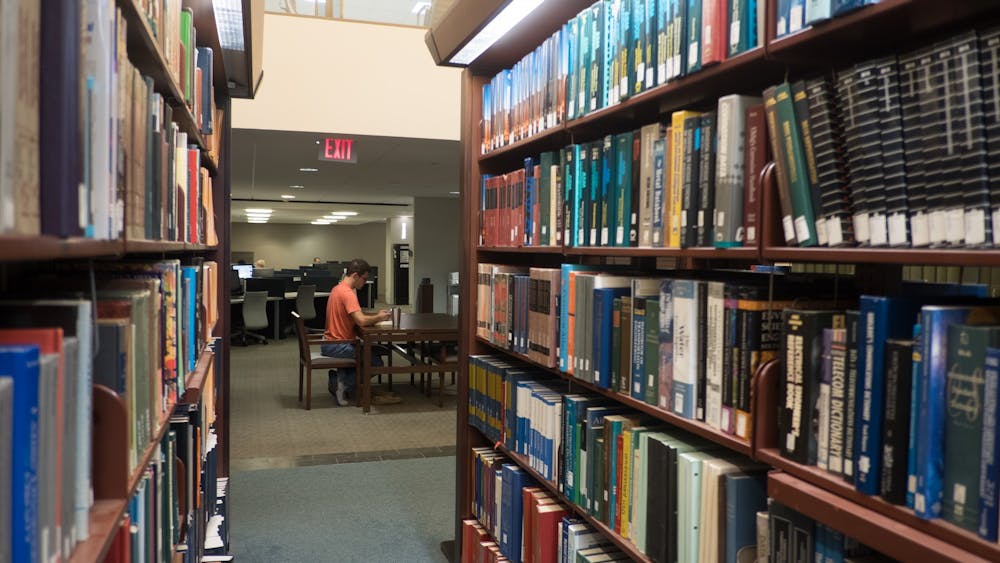Faculty Senate approves extension of drop deadline to Jan. 13, Leebron discusses spring planning

The Faculty Senate voted on Nov. 18 to extend the drop deadline for fall classes to Jan. 13 for continuing students and Jan. 6 for December degree candidates, according to Speaker of the Faculty Senate Christopher Johns-Krull.
The proposal was passed unanimously. If students choose to drop a course by the deadline, it will appear on their transcript as “NG” or “no grade.” For the spring semester, students were able to retake the course at a later time and the “NG” could be petitioned for removal from the spring transcript, but a “NG” for the fall semester will be permanent, according to Johns-Krull.
Johns-Krull said the Faculty Senate was not originally planning for any accommodations for this fall, but it became more apparent over the course of the semester that the stress of the shortened semester and isolation has led to a higher level of anxiety than expected. Dean of Undergraduates Bridget Gorman said she was strongly in favor of this motion for a similar reason.
“[After] meetings and conversations I've had with various members of student leadership … it just felt that this was something that would be good to do in terms of trying to acknowledge the difficulties that the students have had, and provide a lever toward the end of the semester,” Gorman said. “In the end … I don't think any of us truly understood what it was going to feel like to live through it in terms of the [social] distancing.”
Michael Wolf, professor of mathematics, proposed an amendment to the proposal to allow for the “NG” to still be petitioned to be removed for the fall. The proposed amendment encouraged the Committee on Examinations and Standing to look favorably on requests to remove a course from the transcript for students who experienced “exceptional COVID-19-related difficulties” if the course was taken in a future semester. The amendment was rejected, with nine in favor and 13 opposed.
“I'm not so persuaded that this semester is so different from last semester that the ‘no grade’ situation should be irreparable,” Wolf said. “My focus [for this amendment] would be on the students who have been terribly affected by the [COVID-19] situation, and if at the cost of that the policy gets abused by some [to protect their GPA] I'll live with that.”
David Tenney, university registrar, said he felt uncomfortable with the amendment by Wolf because it would require the Office of the Registrar to do something against best practices for a registrar at any institution, which would be to remove academic history after it has been recorded.
“The difference between the fall and last spring was last spring, we, like every institution nationwide, had on the transcript a notation about the uniqueness of COVID-19 in the spring semester,” Tenney said. “We haven't discussed putting a transcript notation for the fall, so that would be a unique difference. In talking with colleagues around the country, most schools are not putting a notation on the transcript for the fall.”
At the meeting, President David Leebron discussed some of the spring semester logistics and the current nature of the pandemic in the country.
“Across the country, the situation is fairly dire,” Leebron said. “We have about 150,000 cases a day right now and the situation in Texas generally also has not been good, particularly with … the really terrible situation in El Paso but also a very rapid growth curve in Dallas, Fort Worth and other areas. That level has not quite hit Houston yet, but it could.”
Leebron also mentioned the chances of a COVID-19 vaccine affecting the structure of the spring semester.
“There are vaccines on the way; the evidence looks very promising,” Leebron said. “We're not quite sure when those might be available to our students, but as a university [we have] relatively high priority. All that said, people may decide that they're not ready for those vaccines, so it's not clear, in terms of our campus posture and rules, if that will have any immediate effect on how classes are structured or the activities on the campus.”
Leebron said the administration contemplates a roughly similar environment in January, with the major measures including COVID-19 testing, physical distancing requirements, contact tracing, isolation and quarantining still in place.
“Generally, we're pleased with how the semester has gone,” Leebron said. “Not to say that there haven't been some really sad and terrible things that have happened, including the death of one of our employees.”
More from The Rice Thresher

Rice welcomes 7.8% of applicants to class of 2029
Rice accepted 2,852 applicants to the class of 2029 March 26, said Yvonne Romero, vice president for enrollment. This represents 7.8% of 36,777, the highest acceptance rate since 2022.

Engineering school celebrates 50th anniversary, invites students, alumni and speakers
The George R. Brown School of Engineering invited engineering alumni, students and faculty to celebrate its 50th anniversary March 28-29. The event, which took place in the Engineering Quad, included speakers, a drone show, alumni gatherings and other social events like mixers.
Student store offers discounted merch to students
Select merchandise from the Campus Bookstore will now be available to students for a discounted price, according to an Instagram post by the Student Association in collaboration with the Campus Bookstore. Each month, designated “spirit items” will be offered at a 10% discount. For the month of March, the selected merchandise was two blue Rice T-shirts.


Please note All comments are eligible for publication by The Rice Thresher.